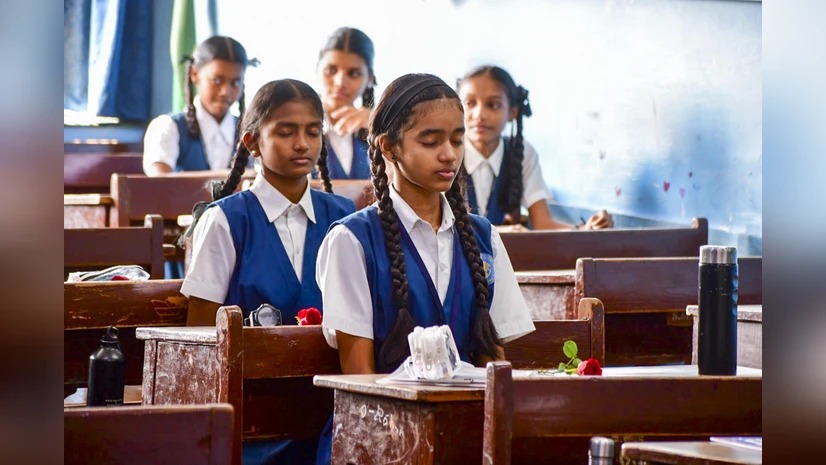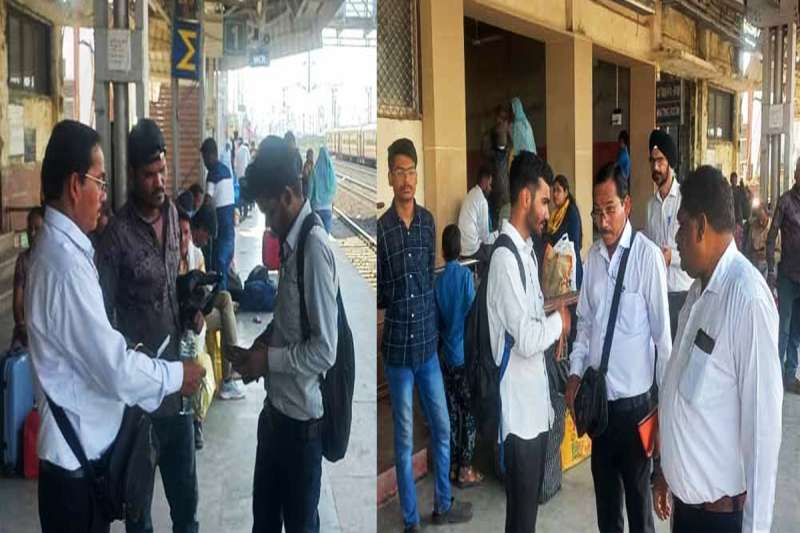Ram Prasanna Sharma, J
1. This appeal is directed against the judgment of conviction and order of sentence dated 29-6-2010 passed by the 9 th Additional Sessions Judge
(FTC), Raipur (CG) in Sessions Trial No.173 of 2009 wherein the said Court convicted the appellant for the commission of offence under Section 307
of IPC and sentenced him to undergo rigorous imprisonment for seven years and to pay fine of Rs.500/- with default stipulations.
2. In the present case, names of the victims are Rakesh Yadav and Gorelal. As per version of the prosecution on 1-5-2009 at about 8.15 p.m., near
Shahid Bhagat Singh Chowk, the victim Rakesh Yadav was going to his house where present appellant demanded money from him for liquor which
was refused by the victim and at the same time appellant stabbed him by knife. The victim went to his house and narrated the story to his brother
namely Gorelal @ Santosh who in turn went to the place of incident and made enquiry about the incident, appellant also stabbed him. Thereafter, both
the injured persons were admitted to the hospital. The matter was reported to the Police and after completion of investigation charge sheet was filed,
the appellant did not plead guilty and the trial was conducted. After completion of trial, the trial Court convicted and sentenced the appellant as
aforementioned.
3. Learned counsel for the appellant submits as under:
I) Prima facie, offence under Section 307 of IPC is not made out because there was no intention of the appellant to kill Rakesh Yadav or Gorelal II)
There is no motive of crime and severity of blow, but the trial Court did not take the same into consideration for determining the issue and at the most
the the offence falls under Section 324 of IPC, therefore, the finding of the trial Court is liable to be reversed.
4. On the other hand, learned counsel for the State submits that the finding recorded by the trial Court is based on proper marshaling of evidence and
the same is not required to be interfered while invoking the jurisdiction of the appeal.
5. I have heard learned counsel for the parties and perused the material available in the record.
6. In the present case, date of incident is 1-52009 and report was lodged on the same day at Police Station Kotwali as per Ex.P/22 in which name of
the appellant is mentioned as culprit and his act of assaulting the victims by knife is also mentioned in the said report.
7. Victim Rakesh Yadav (PW/5) deposed before the trial Court that at the time of incident appellant demanded money from him for liquor and when
he denied the appellant assaulted him by knife on his abdomen and on left leg. Again, as per version of victim Gorelal (PW/6), when his brother
Rakesh Yadav informed him about the incident, he went to the place of incident i.e., Shahid Bhagat Singh Chowk and made enquiry about the
incident. The appellant assaulted him by knife on his abdomen and on back side of left hand. Version of this witness is supported by version of PW/2
Kesar Bai, Milapram Yadav PW/3 and Rameshwar PW/4. All the witnesses have been subjected to searching cross examination, but nothing could
be elicited in favour of defence. Version of all the witnesses is supported by version of Dr. Ishwarya Netam (PW/8) who examined the victim Gorelal
on 1-5-2009 at Mekahar Hospital, Raipur and noticed the following injuries as per Ex.P/12.
i) Stab injury over umbilicus (left side) in the size of 3 cm x 2 cm.
ii) Stab injury over left side of chest in the size of 1 cm x 1 cm.
Iii) Stab injury on below elbow joint in the size of 3 cm x 2 cm.
He further examined the victim Rakesh Yadav on the same day and noticed the following injuries as per Ex.P/13.
i) Stab injury over lower abdomen in the size of 10 cm x 5 cm.
ii) Stab injury over right hip in the size of 1 cm x 1 cm.
Iii) Stab injury over below knee in the size of 1 cm x 0.5 cm.
Dr. Brajesh Mishra (PW/12) opined that if proper treatment would not have been provided to victim Gorelal, he would have succumbed to those
injuries. Dr. Brijlal (PW/13) deposed that if proper treatment would not have been provided to victim Rakesh Yadav, he would have succumbed to
those injuries.
8. Looking to the direct and medical evidence which is supported by FIR lodged on the same day naming the appellant, there is nothing to disbelieve
the case of the prosecution and witnesses adduced on behalf of the prosecution. All the witnesses have deposed in one voice which inspires
confidence of the court and their statement is quite natural and acceptable in merit.
9. Now the point for determination is whether the act committed by both the appellants constitute offence under Section 307 of IPC.
10. An attempt is an intended, but unfinished crime, tending but failing to effect its commission. Specific intention to commit the crime of murder is a
necessary prerequisite of this section. In so far as the offence relates to an attempt, the overt act must necessarily be left unaccomplished because
otherwise the prosecution would be for the completed crime. Apart from the necessary mens rea, actus reus must be more than a preliminary
preparation. The attempt must have gone so far that it would result in the commission of the crime intended unless frustrate by the intervention of
extraneous circumstances, independent of the will of the accused. So, in order to constitute an offence under this section, it must be established that
the offender did an act (the actus reus) and that act was actuated by an intention (the mens rea) to go further and to achieve a definite end, which is a
specific crime, namely, murder. The prosecution has to establish both the elements of the crime by proving that the accused did something, which, in
point of law, would be an intention of the commission of an offence and in taking that step, he was inspired by an intention to achieve the definite
objective which constituted the particular crime.
11. To constitute an offence under Section 307 IPC, two ingredients of the offence must be present:
(a) an intention of or knowledge relating to commission of murder: and
(b) the doing of an act towards it.
The essential ingredients required to be proved in the case of an offence under Section 307 IPC are:
(i) That the death of a human being was attempted;
(ii) That such death was attempted to be caused by, or in consequence of the act of the accused;
(iii) That such act was done with the intention of causing death; or that it was done with the intention of causing such bodily injury as; (a) the accused
knew to be likely to cause death; or (b) was sufficient in the ordinary course of nature to cause death, or that the accused attempted to cause death by
doing an act known to him to be so imminently dangerous that it must in all probability cause (a) death, or (b) such bodily injury as is likely to cause
death, the accused having no excuse for incurring the risk of causing such death or injury.
(iv) To justify conviction under this section it is not essential that bodily injury capable of causing death should have been inflicted.
12. In the present case, as per report of medical evidence, injuries are fatal in nature. If property treatment would not have been given to victims in
time, they would have succumbed to burn injuries. It means, it can be inferred that the appellant has done everything within his power to eliminate the
both the victims, but final result alludes because of proper treatment in time. In view of this Court, the act of the appellant falls within mischief of
Section 307 of the IPC for which the trial Court convicted him. Conviction of the appellant is hereby affirmed.
13. Heard on the point of sentence.
Offence under Section 307 IPC is punishable with imprisonment for life. The trial Court awarded rigorous imprisonment for seven years which cannot
be termed as harsh, unreasonable or disproportionate. Sentence part is also not liable to be interfered.
14. Accordingly, the appeal being devoid of merits is liable to be and is hereby dismissed. The appellant is reported to be in jail, therefore, no further
arrest for his arrest etc., is required.

